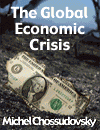Results 1 to 1 of 1
Thread Information
Users Browsing this Thread
There are currently 1 users browsing this thread. (0 members and 1 guests)
-
10-19-2010, 09:31 PM #1Senior Member


- Join Date
- May 2007
- Location
- South West Florida (Behind friendly lines but still in Occupied Territory)
- Posts
- 117,696
From Global Depression to Global Governance
October 19, 2010
From Global Depression to Global Governance
The role of the corporate elites' secretive global think tanks
by Andrew Gavin Marshall
Global Research, October 19, 2010

The following is the text of Andrew Gavin Marshall's presentation at the book launch of The Global Economic Crisis: The Great Depression of the XXI Century", Michel Chossudovsky and Andrew Gavin Marshall (Editors). September 29, 2010, Montreal, Canada.

We now stand at the edge of the global financial abyss of a âGreat Global Debt Depression,â where nations, mired in extreme debt, are beginning to implement âfiscal austerityâ measures to reduce their deficits, which will ultimately result in systematic global social genocide, as the middle classes vanish and the social foundations upon which our nations rest are swept away. How did we get here? Who brought us here? Where is this road leading? These are questions I will briefly attempt to answer.
At the heart of the global political economy is the central banking system. Central banks are responsible for printing a nationâs currency and setting interest rates, thus determining the value of the currency. This should no doubt be the prerogative of a national government, however, central banks are of a particularly deceptive nature, in which while being imbued with governmental authority, they are in fact privately owned by the worldâs major global banks, and are thus profit-seeking institutions. How do central banks make a profit? The answer is simple: how do all banks make a profit? Interest on debt. Loans are made, interest rates are set, and profits are made. It is a system of debt, imperial economics at its finest.
In the United States, President Woodrow Wilson signed the Federal Reserve Act in 1913, creating the Federal Reserve System, with the Board located in Washington, appointed by the President, but where true power rested in the 12 regional banks, most notably among them, the Federal Reserve Bank of New York. The regional Fed banks were private banks, owned in shares by the major banks in each region, which elected the board members to represent them, and who would then share power with the Federal Reserve Board in Washington.
In the early 1920s, the Council on Foreign Relations was formed in the United States as the premier foreign policy think tank, dominated by powerful banking interests. In 1930, the Bank for International Settlements (BIS) was created to manage German reparations payments, but it also had another role, which was much less known, but much more significant. It was to act as a âcoordinator of the operations of central banks around the world.âJoin our efforts to Secure America's Borders and End Illegal Immigration by Joining ALIPAC's E-Mail Alerts network (CLICK HERE)


 LinkBack URL
LinkBack URL About LinkBacks
About LinkBacks




 Reply With Quote
Reply With Quote

10% To 27% of 30 Million Non-Citizens Are Registered To Vote
05-15-2024, 10:29 AM in General Discussion